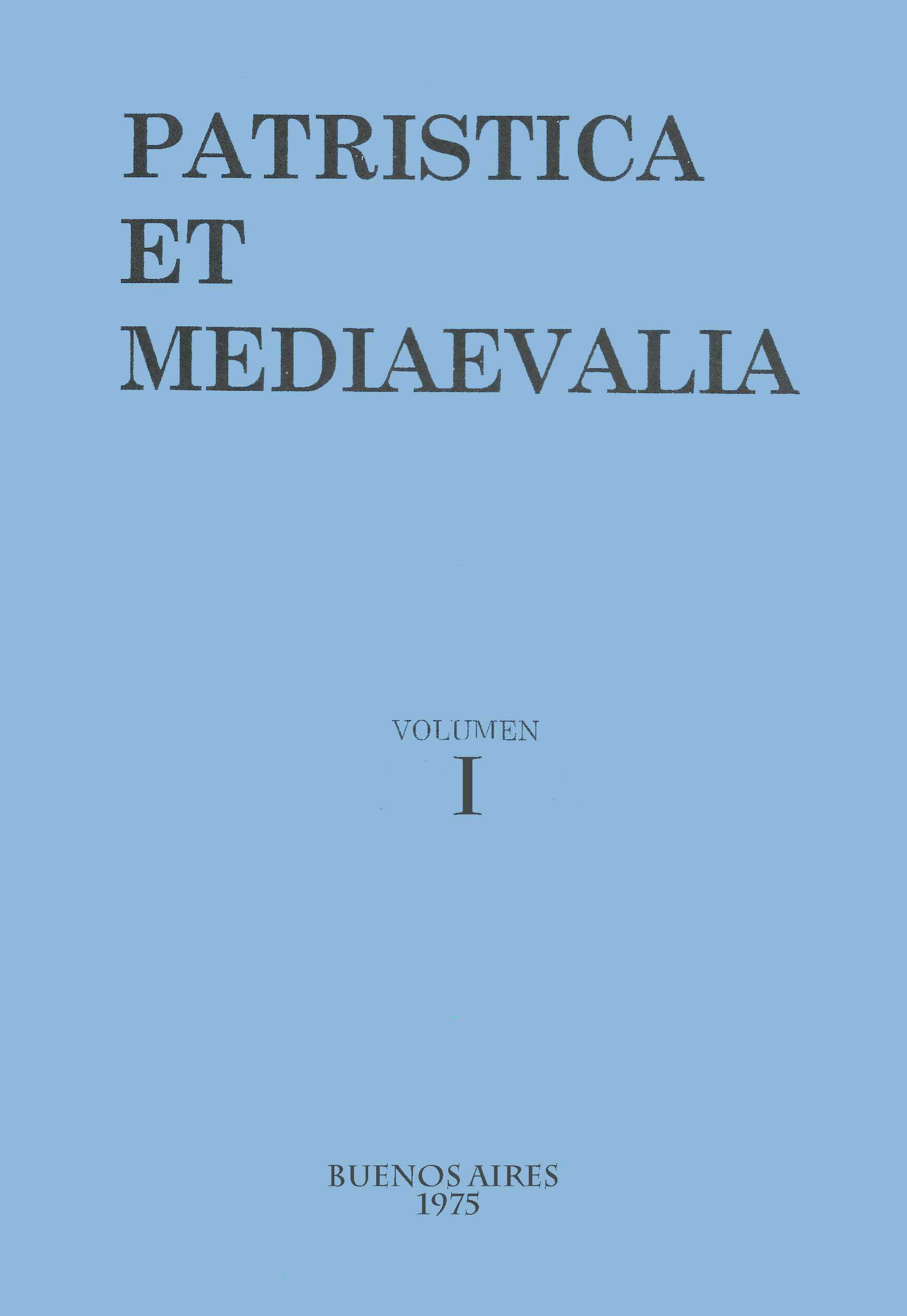Obstacles that Freedom faces according to the Doctrine of Gregory of Nyssa
Abstract
For Gregory, man is essentially defined as a “free being”. We find this affirmation since his first work, De virginitate, where he affirms that man, as an image and likeness of God, possesses “the sovereign freedom of choice” (tò autexoúsion tês proairéseos). Gregory maintains that man is truly free only when he is the owner and cause of his acts, that is, when he possesses full capacity for self-determination. And, he argues, there are, however, a series of obstacles that prevent him from freely choosing and “being able to reach the truly desirable object” (tó óntos epithymetón). Thus, we will analyze the obstacles to which Gregory refers and the mode of solution. These obstacles can be classified into two large groups: internal and external.Downloads
References
Aubineau, M. (1966). Grégoire de Nysse, Traité de la Virginité: Introduction, texte critique, traduction, commentaire et index. Coll. “Sources chrétiennes”. Paris: Editions du Cerf.
Bergadá, M. M. (1970). El puesto del hombre en el cosmos en el De hominis opificio De Gregorio de Nyssa. Eidos, Revista de Filosofía (UNC), 2.
Canévet, M. (1968). Nature du mal et économie du salud chez Grégoire de Nysse. Recherches de Sciences religieuses, 56, 87-95.
Daniélou, J. (1953). Platonisme et Théologie mystique, Essai sur la doctrine spirituelle de saint Grégoire de Nysse. Paris: Aubier.
Daniélou, J. (1955). Grégoire de Nysse, La vie de Moïse ou Traité de la perfection en matière de vertu: Introduction, traduction. Deuxième édition revue et augmentée du texte critique. “Sources chrétiennes”. Paris: Ed. du Cerf.
Daniélou, J. (1970). L’être et le temps chez Grégoire de Nysse. Leiden: Brill.
Daniélou, J. (1966). Le problème du changement chez Grégoire de Nysse. Archive de Philosophie, 29(3), 323-347.
Daniélou, J. (1967). Philon et Grégoire de Nysse. En: Philon d’Alexandrie, Lyon 11-15 Septembre 1966: colloques nationaux du Centre National de la Recherche Scientifique. Éditions du CNRS: Paris.
Gaïth, J. (1953). La conception de la liberté chez Grégoire de Nysse. Vrin: Paris.
Ladner, G. B. (1958). The Philosophical anthropology of St. Gregory of Nyssa. Cambridge: Harvard University Press.
Laplace, J. (1944). La création de l’homme, Coll. “Sources chrétiennes”. Paris: Editions du Cerf.
Leys, R. (1951). L’Image de Dieu chez saint Grégoire de Nysse, Esquisse d’une doctrine. Bruxelles: L’Edition Universelle / Paris: Desclée De Brouwer.
Méridier, L. (1908). Grégoire de Nysse, Discours catéchistique: Texte grec, traduction française, introduction et index. Paris.
1. The authors who publish in this magazine accept the following conditions:
-
They retain the copyright and grant to the magazine the right of the first publication, with the work registered under the Attribution-ShareAlike 4.0 International License that allows third parties to use what is published as long as they mention the authorship of the work and the first publication in this magazine.
-
They can make other independent and additional contractual agreements for the non-exclusive distribution of the version of the article published in this magazine (eg. include it in an institutional repository or publish it in a book) provided that they clearly indicate that the work was first published in this journal.
-
They are allowed and recommended to publish their work on the Internet (for example on institutional or personal pages).
2. AutoArchive Conditions. Authors are allowed and encouraged to distribute post-print electronic versions of their manuscripts because it promotes their circulation, a possible increase of quotation and a major reach among the Academic community. Color RoMEO: blue.













